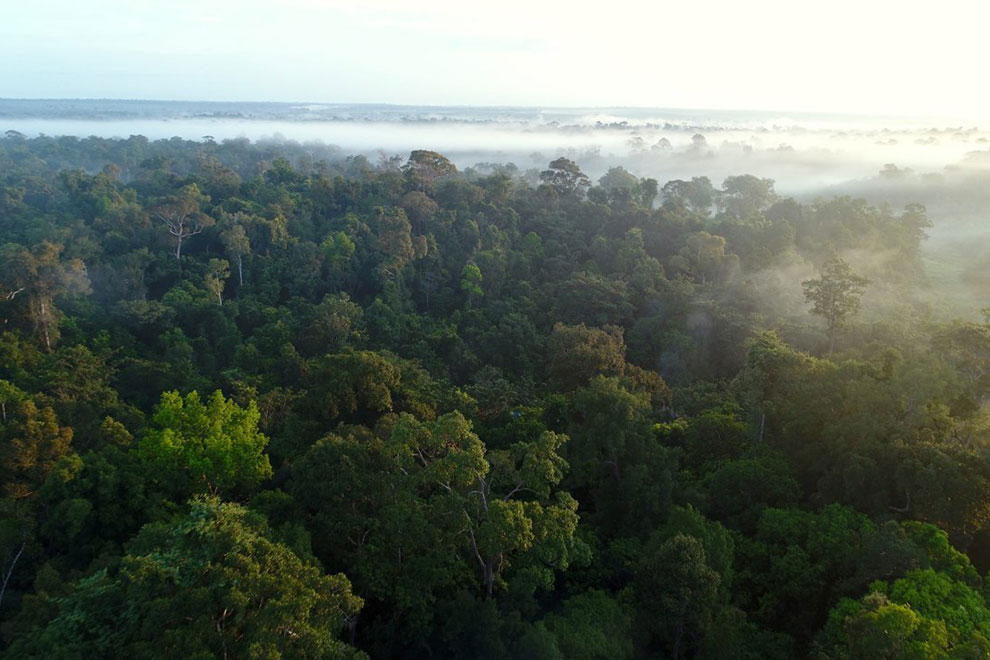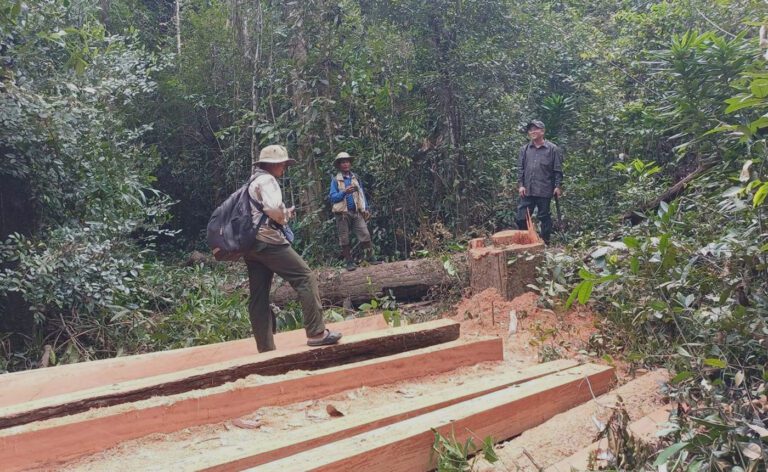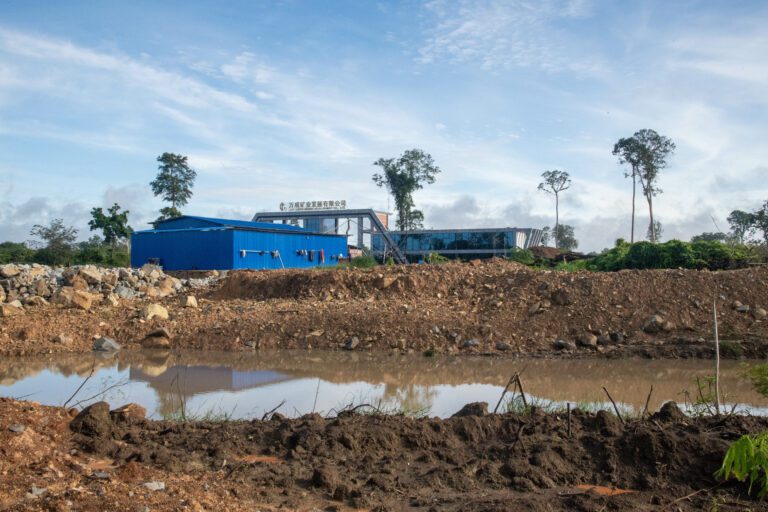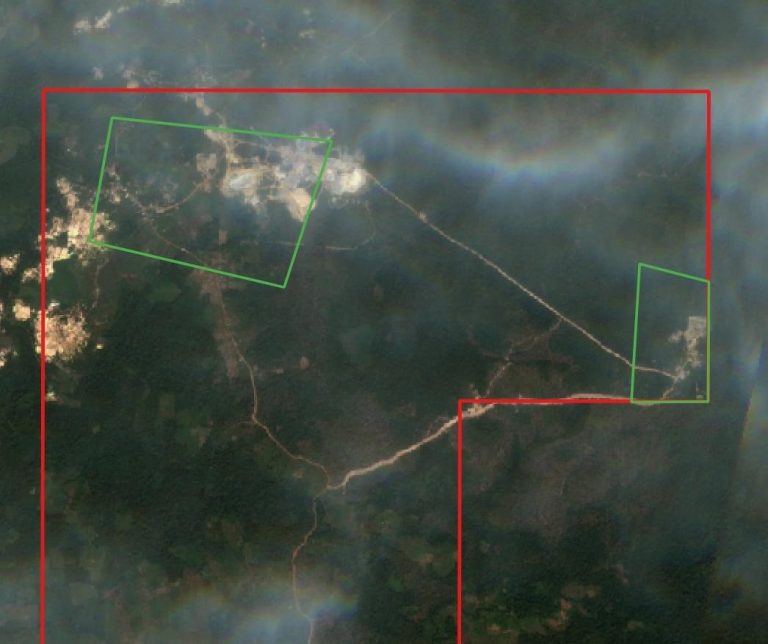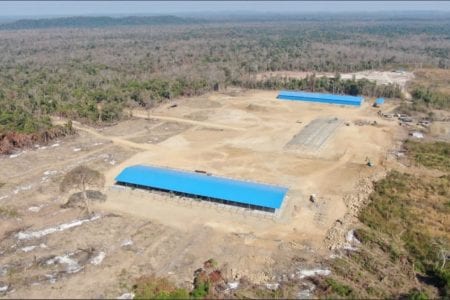The United States is ending its financial support for the multi-million dollar “Greening Prey Lang” project, accusing Cambodian authorities of failing to prevent illegal logging and of targeting local communities who have tried to monitor ongoing deforestation.
The US embassy in Phnom Penh said in a statement on Thursday that the country has invested more than $100 million in programs designed to combat illegal logging in Cambodia through the US Agency for International Development (USAID).
The statement alleged that while Cambodia has made some important progress in environmental protection, the US has repeatedly expressed its concern about high rates of deforestation in protected areas, particularly in the Prey Lang Wildlife Sanctuary.
“Unfortunately, the situation is worsening,” it said. “Cambodian authorities have not adequately prosecuted wildlife crimes or put a stop to these illicit activities.”
The statement claimed that Prey Lang Wildlife Sanctuary has lost roughly 38,000 hectares of forest, or nearly nine percent of its forest cover. Local communities have continued to document logging in and around the sanctuary. It was these communities, and their civil society partners, the statement alleged, that the government was routinely trying to silence.
Environment Ministry spokesperson Neth Pheaktra said that the ministry respected the decisions of development partners, and thanked the US for its past technical assistance to Cambodia in the protection and conservation of Prey Lang’s natural resources.
“Both parties agreed to turn to other forms of cooperation that will continue to serve Cambodia’s interests,” he said.
Pheaktra claimed that there were no longer “large-scale” illegal logging in Prey Lang Wildlife Sanctuary, but said that small-scale incidents still occurred.
“There are a few remaining concerns, and the Environment Ministry and other relevant authorities are continuing to implement the law,” he said. He maintained that the Environment Ministry, on behalf of the government and its officials, is responsible and strong enough to fulfill the role of protecting and conserving Cambodia’s natural resources on the basis of the law.
In April this year, an international advocacy group tracking organized crime accused the Cambodian government of overlooking, and at times actively protecting, illegal logging groups.
In its report, the Global Initiative Against Transnational Organized Crime initiative stated that government officials were “at the very least providing an accommodating environment for illegal logging operations”, citing frequent reports of powerful private companies accused of cutting down trees in protected areas.
Hoeun Sopheap, a Prey Lang Community Network (PLCN) representative in Kampong Thom province, said he welcomed the withdrawal of funding.
“It is the correct decision for the US to end funds to avoid further risks,” he said. “Because they have helped in order to successfully protect natural resources, but the government has failed to protect the forest.”
“In my opinion, the US government has seen that if they continue to help [funding] the forest will continue to be destroyed,” he said.
Sopheap said that the PLCN were still monitoring deforestation despite the Environment Ministry’s ban on community patrols of the forest’s entrance. He said that monitors had seen loggers bringing truckloads of timber out of the protected area as recently as June 12.
“We saw five homemade trucks transporting timbers from Prey Lang during our three-day patrol,” he said.
Since February 2020, Sopheap said, the PLCN has observed an increase in the use of hand-made guns and traps to catch wildlife, forest-clearing in the buffer and core zones of the sanctuary, and timber transportation and equipment crossing checkpoints every day.
However, Tob Kakada, director of the Kampong Thom provincial environment department, said that the withdrawal of USAID funding will not impact the duty of rangers to protect Cambodia’s forests.
“It has not affected our rangers patrols,” he said. “Even without this money, [our rangers] have a core obligation to patrol daily.”
Kakada admitted that forestry crimes were happening, but insisted that these offenses were carried out by local villagers. He accused the decision of being motivated by a political agenda.
“They [USAID] have just heard empty accusations that forest crimes had happened, and they tried to gain a political advantage,” he said.
Goldman Environmental Prize-winner and environmental activist Ouch Leng said that the US’s decision was too little, too late.
“It is too late to stop the funding because the money has almost run out, and the forest is still being destroyed,” he said. “Ending funding has not enough; they have to take legal action against the people and companies who have been destroying the forest in Prey Lang.”
Leng accused USAID officials in Cambodia of having colluded in the destruction of Prey Lang by failing to report on illegal logging.
“There has been no legal action taken against [corrupt officials] to show the public, because ‘Green Prey Lang project’ has taken part in destroying the forest,” Leng said.
Heng Kimhong, a research and advocacy program manager of the Cambodian Youth Network, said that he believed the US’s decision to end its funding was a result of the government’s lack of success in protecting Cambodia’s forests, as well as its targeting of environmental activists.
“It is a lesson learnt showing that we [government] have not managed our fores ts effectively,” he said.
Kimhong suggested that the Environment Ministry review their own work as well as restoring rights and freedoms to local communities and activists working to protect natural resources.
“It is sending a message to the government to reconsider [its stance on] human rights, to restore democracy and the right to freedom of expression,” he said.


